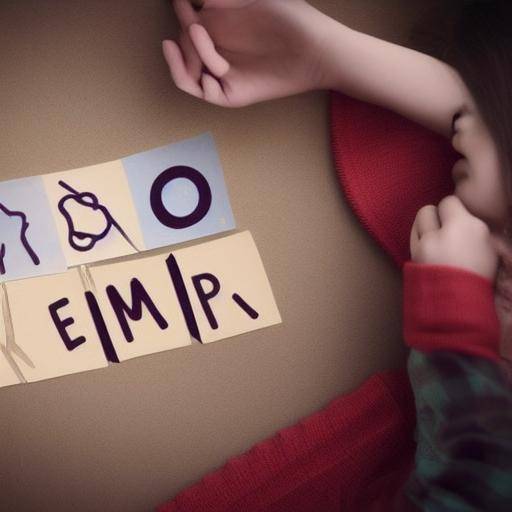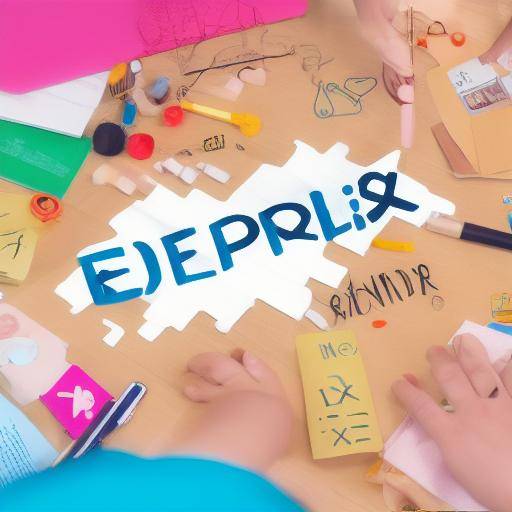
Introduction
Reflection, an ancestral practice, has proven to be a powerful tool for improving emotional intelligence and personal development. In this article, we will explore in depth how reflection can positively impact our lives, giving us a greater understanding of our emotions, thoughts and behaviors. We will learn how to use it effectively to boost our personal growth and strengthen our emotional intelligence.
History and Background
The practice of reflection has deep roots in diverse cultures around the world. From Greek philosophers to Eastern spiritual traditions, reflection has been recognized as a tool for self-knowledge and personal growth.
Throughout history, figures such as Socrates, Confucius and Buddha have advocated for the importance of introspection and reflection as means of understanding our emotions and improving our lives.
In more recent times, psychology and neuroscience have scientifically supported the benefits of reflection in the development of emotional intelligence and psychological well-being. Studies have shown that regular practice of reflection can lead to greater self-consciousness, a deeper understanding of our emotions and a more conscious decision-making.
Analysis in Deep
Reflection not only promotes emotional awareness, but can also promote empathy, emotional self-regulation and effective management of interpersonal relationships. The ability to reflect on our own emotions allows us to better understand the emotions of others, which is fundamental to strengthening emotional intelligence.
In addition, the practice of reflection helps us to identify limiting thinking patterns, to question rooted beliefs and to develop a more flexible and open mindset. This mental flexibility is crucial to adapt to stressful situations and to face resilience challenges.
Comprehensive review
The integration of reflection into our daily lives is fundamental to the development of emotional intelligence. Different techniques of reflection, such as therapeutic writing, mindfulness meditation and constructive internal dialogue, can be applied according to individual preferences.
It is key to recognize that reflection requires time and dedication, but long-term benefits are significant. It is never too late to begin to practice reflection and experience its transformative effects in our personal and emotional development.
Comparative analysis
When we talk about reflection, it is crucial to highlight their intrinsic relationship with emotional intelligence and personal development. Reflection provides the necessary context and understanding to nurture and strengthen our emotional intelligence, which in turn enables us to face challenges, manage our emotions and relate more effectively to others.
Practical Tips and Accessible Guidance
If you want to start incorporating reflection in your daily life, consider these practical tips:
- Set a moment of the day for reflection: Dedicate a specific time, either in the morning or at night, to reflect on your emotions, thoughts and experiences of the day.
- Take an emotional journal: Write in a journal your daily reflections, highlighting your dominant achievements, challenges and emotions. This will allow you to track your emotional progress over time.
- Practice mindfulness meditation: Mindfulness meditation is an effective way of fostering reflection and self-consciousness. Give a few minutes a day to practice full attention and quiet reflection.
Conclusion
In short, reflection is a powerful tool for improving emotional intelligence and personal development. By incorporating reflection into our daily lives, we can strengthen our self-consciousness, understand better our emotions and relationships, and develop a more resilient and flexible mentality. The constant practice of reflection gives us the ability to address the challenges with greater clarity and emotional well-being.
Frequently asked questions
**Why is reflection important for personal development?**Reflection allows us to examine our experiences, emotions and thoughts more deeply, which helps us to learn and grow on a personal and emotional level.
**How can I incorporate reflection into my daily life?**Reserve time every day to reflect, either through scripture, meditation or conscious self-observation.
**What benefits can reflect on my emotional intelligence?**Reflection strengthens self-consciousness, empathy and emotional self-regulation, fundamental elements of emotional intelligence.
**Is this reflection only for stress situations or emotional challenges?**No, reflection can be practiced continuously to maintain a high level of self-consciousness and personal growth.
**What role does reflection play in the management of interpersonal conflicts?**Reflection helps us to understand our own emotions and to empathize with the emotions of others, which is crucial for effective conflict management.
**Can reflection help in professional growth?**Yes, reflection can improve our decision-making skills, problem solving and leadership, which has a positive impact on the professional environment.
In conclusion, reflection is a valuable tool that can significantly enhance our emotional intelligence and personal development. By cultivating the habit of reflection, we can cultivate a greater understanding of ourselves, foster healthier relationships and develop a more resilient attitude to the challenges of life. Integrating reflection into our daily lives is a fundamental step towards personal and emotional growth.






















































